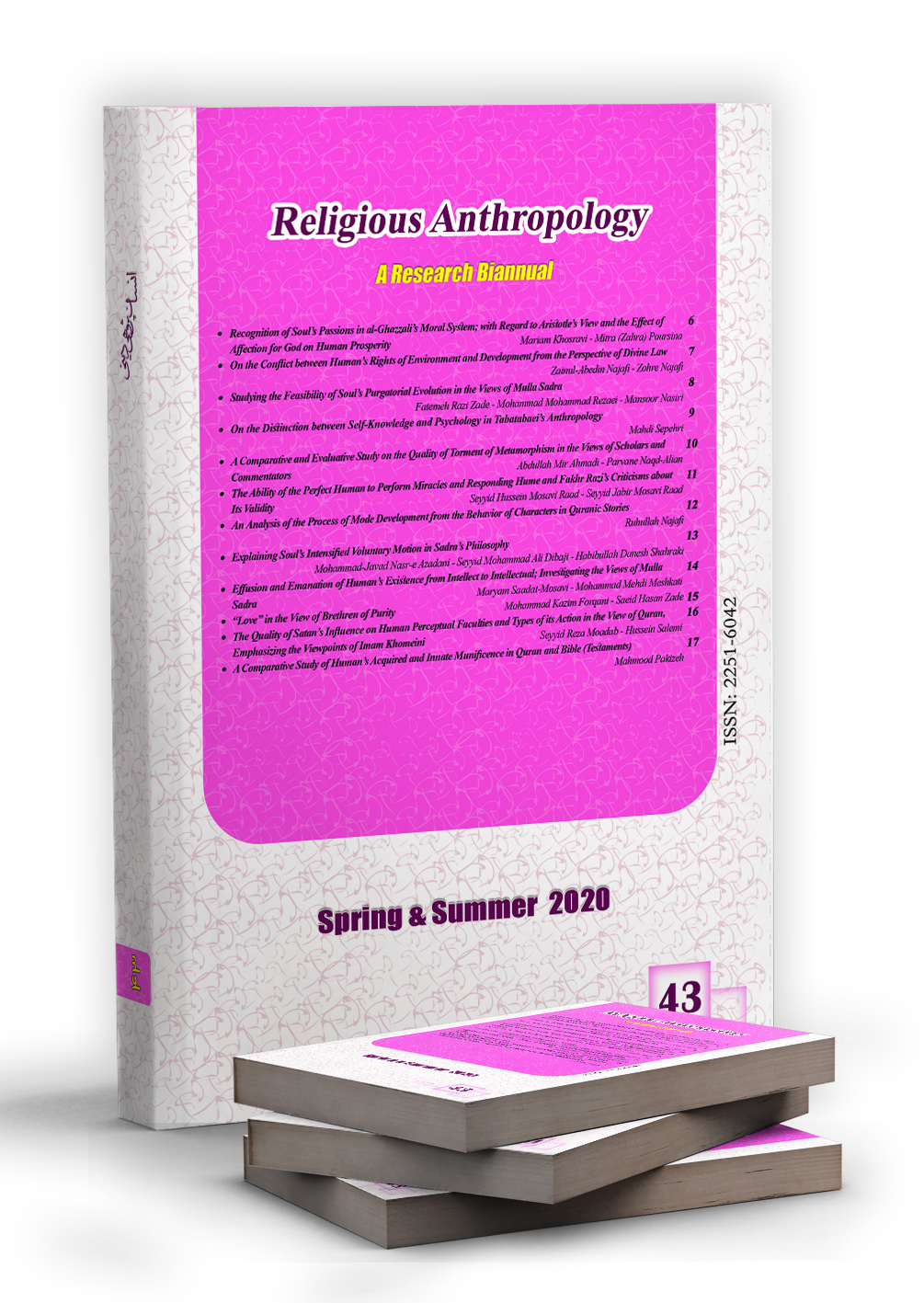The Ability of the Perfect Human to Perform Miracles and Response to Hume and Fakhr Razi’s Critiques
Document Type : Research Paper
Authors
1 Assistant Professor in Department of Theology, Islamic Azad University, Sabzevaar Branch
2 PhD Graduate of Religion Philosophy, Tehran university and Lecturer in Allamah Tabatabaei University
10.22034/ra.2019.102040.2296
Abstract
According to the divine religions, prophets as the obvious manifestations of perfect human, are able to perform miracles and use it to submit proofs on their prophecy. In the west, however, Hume has casted serious doubts on the validity of miracles. Stating that the miracles are reported by some unknowing nations in a particular context, Hume believed that the reported miracles cannot reject the validity of our constantly proven experiences. He adds that the evidences admitted for the miracles are contradictory and therefore we cannot rely on the validity of miracles. Fakhr Razi had also thrown miracles into doubts with minor differences and greater details centuries ago. Yet, although Hume concludes that miracles are invalid, Fakhr Razi tries to employs his own foundations to resolve these doubts and uphold the validity of the miracles. The present study investigates the views of both scholars comparatively and delves into the Fakhr Razi’s answers to these doubts while analyzing the Hume’s viewpoints and criticizes them.
Keywords
